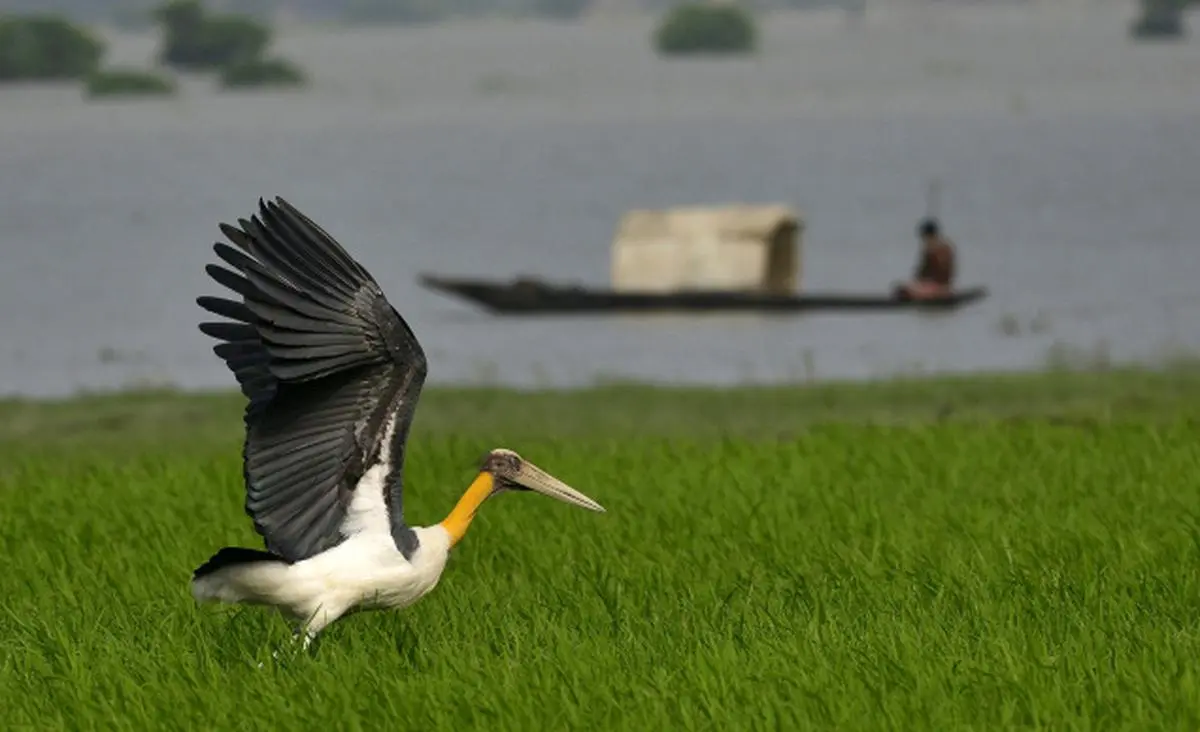
Food for thought: A greater adjutant stork and a local fisherman (in the background) look for fresh catch in a flood-affected village in Morigaon district, Assam
Of the 1,500-odd surviving greater adjutant storks across the world, around 900 are in Assam’s Brahmaputra Valley. Each day is a struggle for this endangered species, which is increasingly seeking refuge in garbage dumps on the outskirts of cities. Known as haargila in Assamese, these birds were earlier found in the many wetlands outside Guwahati.
Between October and February — which is the breeding season — the stork flocks to the water bodies. The rapid decline in the number of wetlands around Guwahati has forced the birds to move to a garbage dumping ground near Deepor Beel Wildlife Sanctuary. The rampant felling of trees in and around Guwahati also imperils the survival of the young. The greater adjutant stork now has fewer tall trees for building nests and roosting.
The city administration has shown little or no concern for the conditions that have pushed the species to the brink. In some residential areas, people deliberately felled trees to keep the rackety and foul-smelling birds away. Wildlife experts suggest that the remaining nesting sites be declared as protected areas, to prevent the numbers from dipping further.
The use of synthetic pesticides in and around Deepor Beel is the other threat to these birds. Consumption of non-biodegradable waste also proves fatal for them.
Photos: Ritu Raj Konwar
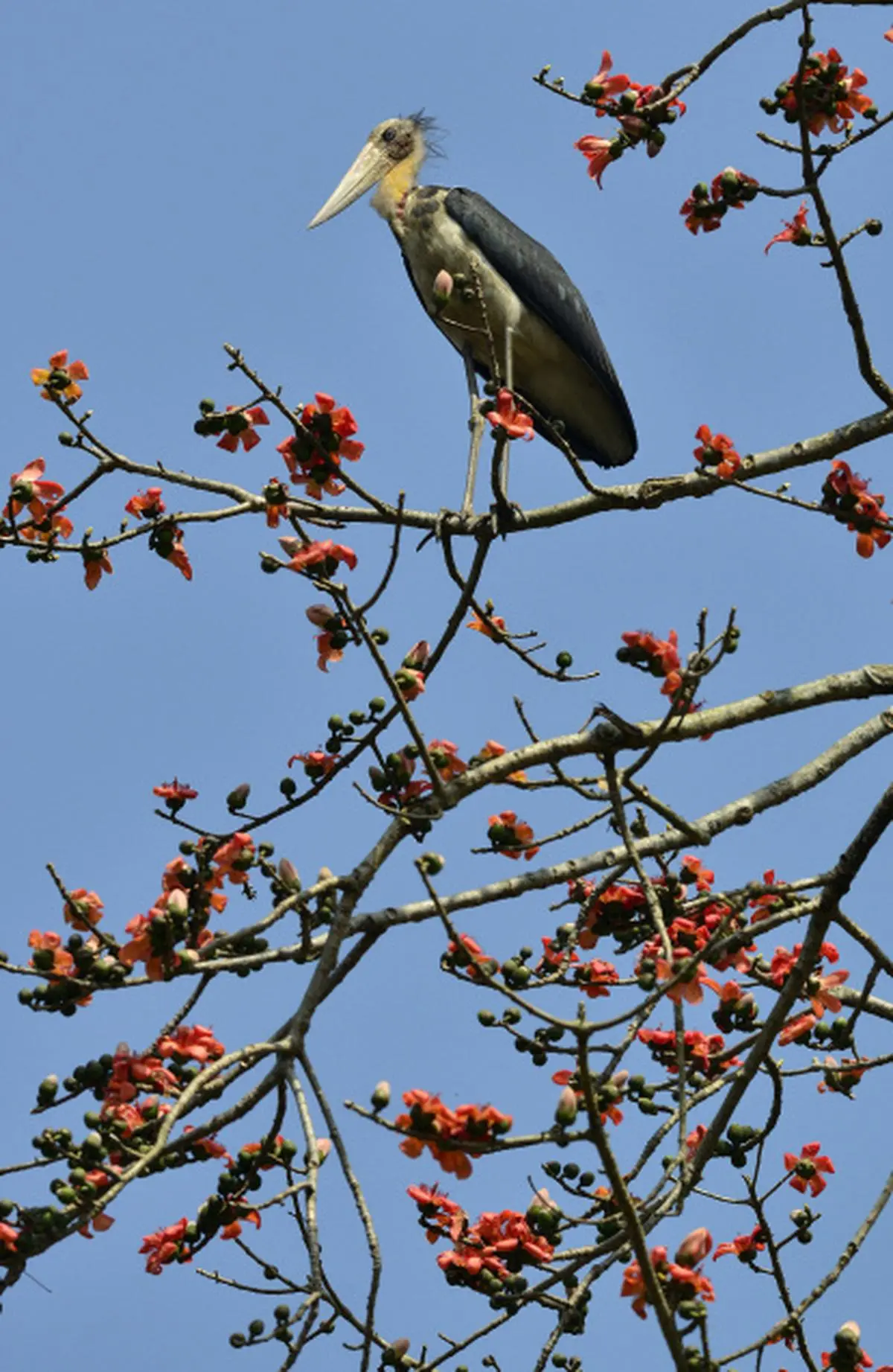
The tall shimul tree is ideal for the greater adjutant stork to build its nest
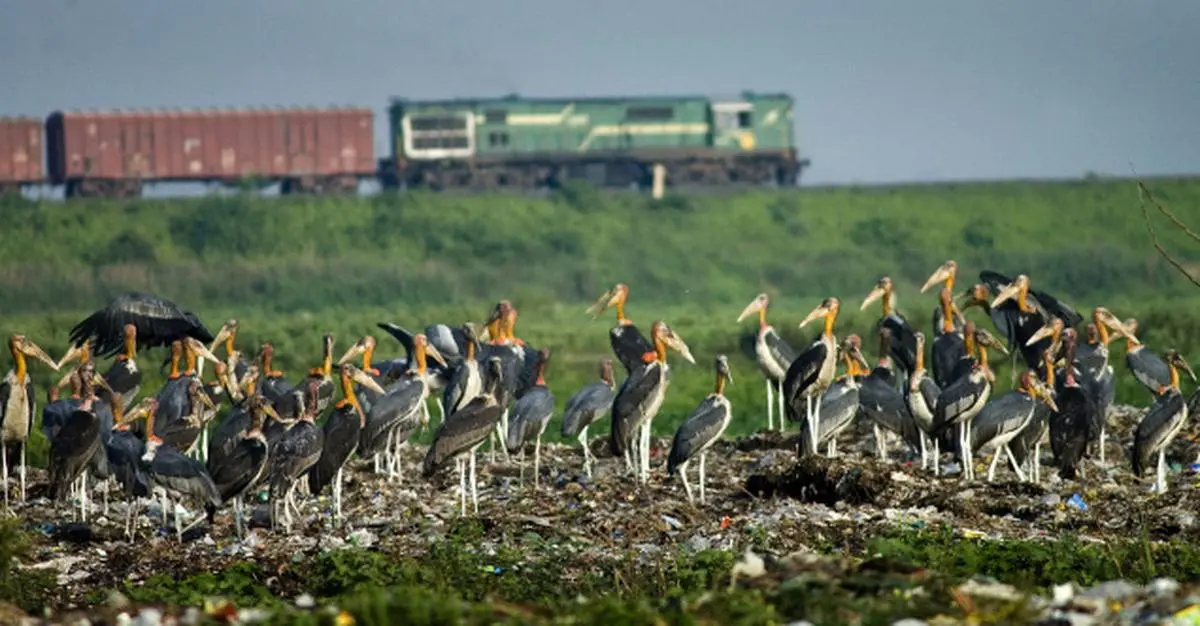
A goods train goes past the Deepor Beel Wildlife Sanctuary near Guwahati. Several bird colonies exist in a dumping ground close to the sanctuary
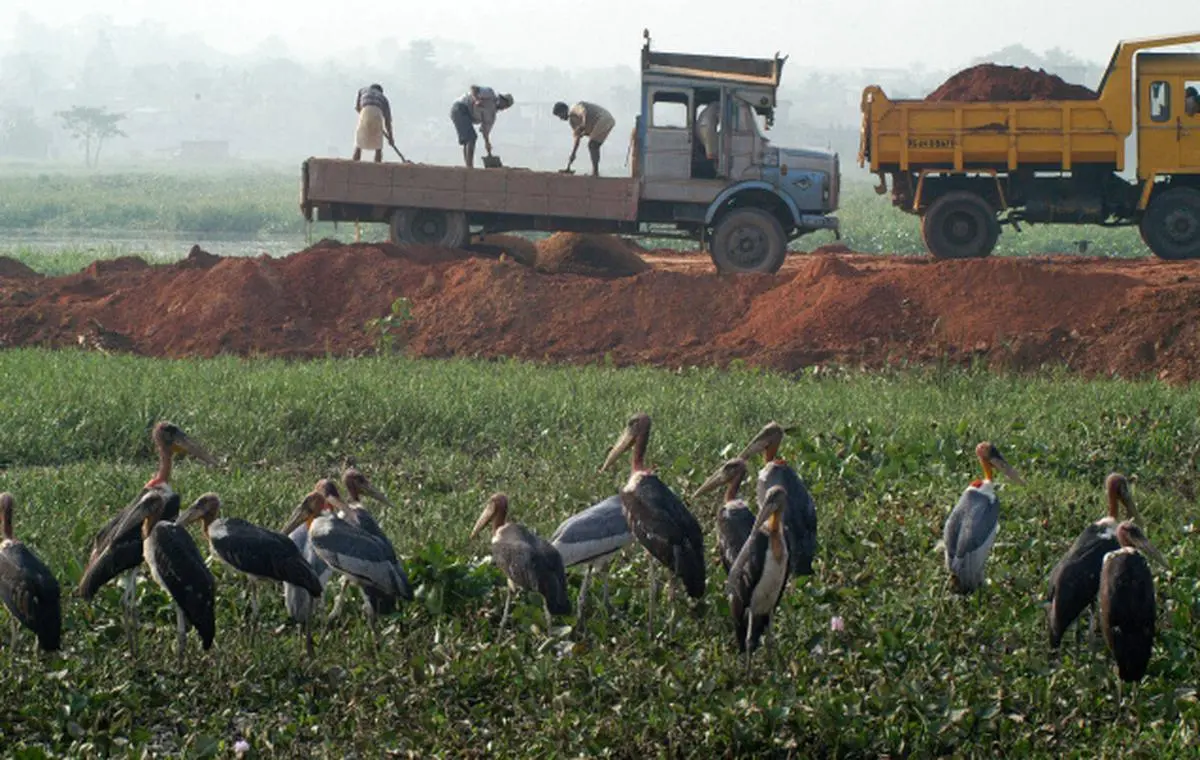
Migrant labourers fill up a wetland near Guwahati
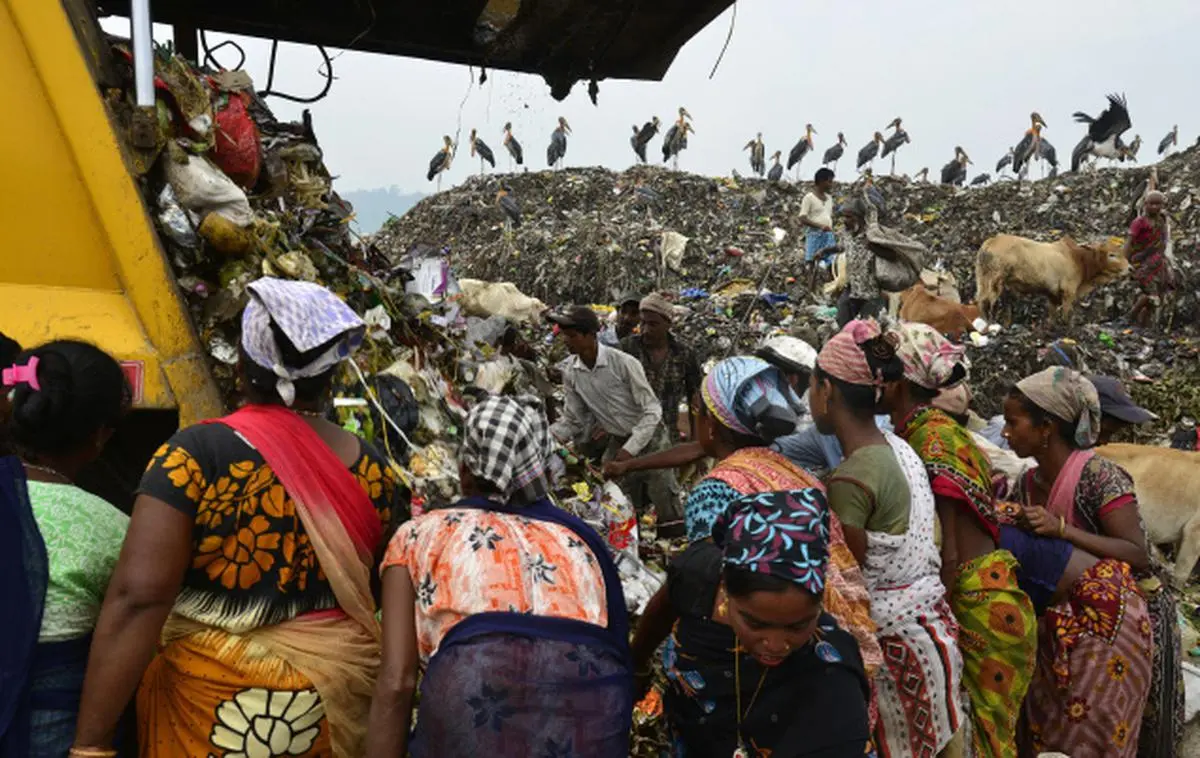
The birds wait for their turn to forage on the waste dumped near Deepor Beel
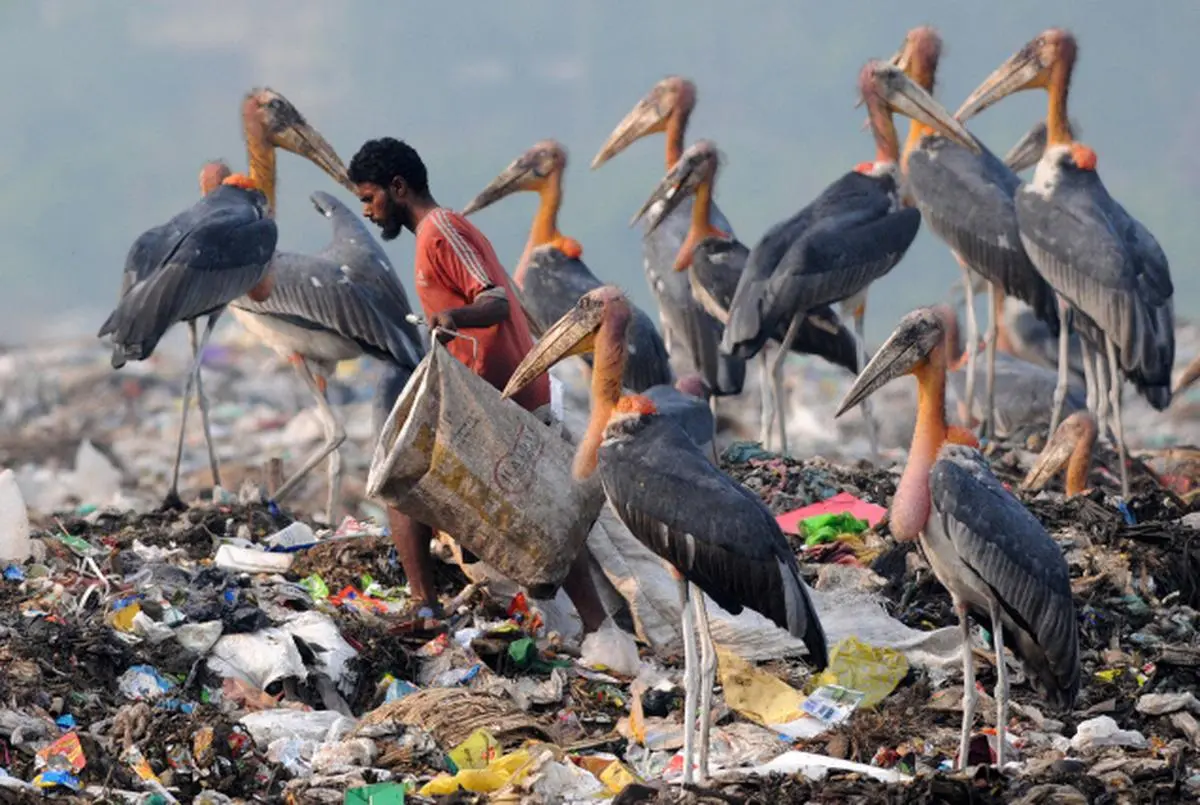
A ragpicker finds his way through a phalanx of storks

Two young ragpickers corner a defenceless bird in the compound of a house near Deepor Beel

Cows and greater adjutant storks share the spoils at a dumping ground near Guwahati
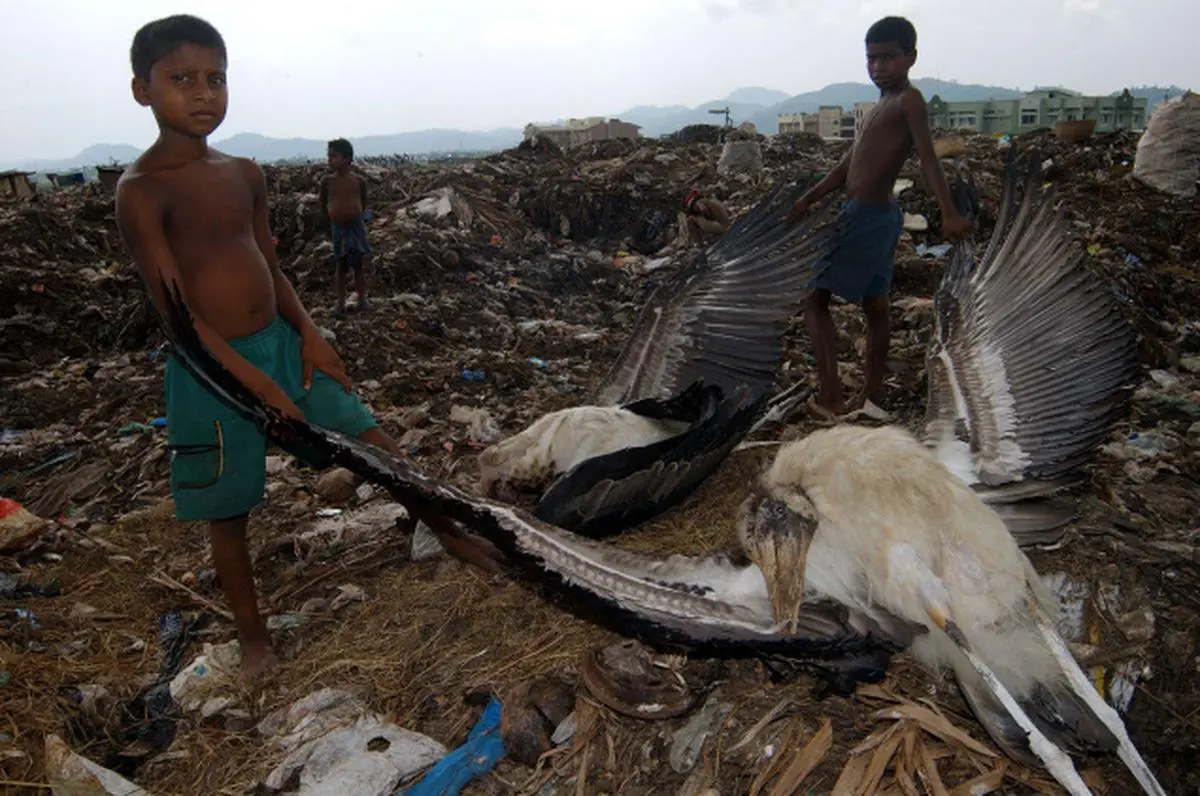
Plastic bags prove silent killers for the storks seeking refuge in a garbage dumping ground
Published on June 10, 2016




Comments
Comments have to be in English, and in full sentences. They cannot be abusive or personal. Please abide by our community guidelines for posting your comments.
We have migrated to a new commenting platform. If you are already a registered user of TheHindu Businessline and logged in, you may continue to engage with our articles. If you do not have an account please register and login to post comments. Users can access their older comments by logging into their accounts on Vuukle.